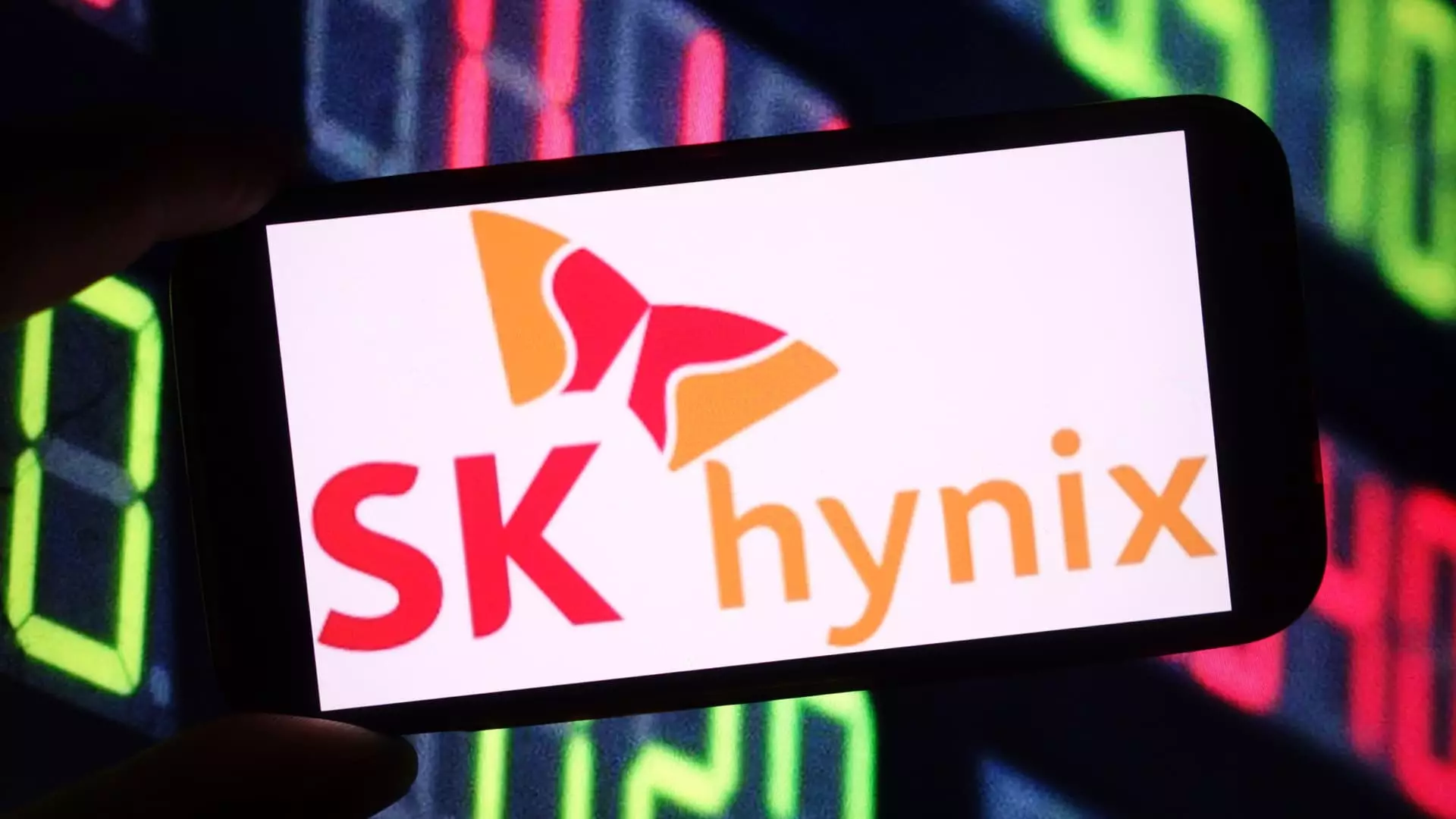In an era where technology evolves at breakneck speed, SK Hynix’s latest quarterly results shine like a beacon of success amidst a landscape rife with challenges. The South Korean semiconductor giant not only surpassed expectations in revenue and operating profit but also demonstrated a remarkable resilience against evolving market dynamics. Their performance in the first quarter of the fiscal year reveals an undeniable trend: demand for high bandwidth memory (HBM) components used in artificial intelligence (AI) chipsets is surging.
The company reported revenues of 17.64 trillion won ($12.36 billion), eclipsing analysts’ predictions of 17.26 trillion won. This achievement is not ephemeral; revenue grew by an impressive 42% year-over-year, while operating profit surged by a staggering 158%. Such figures are a testament to the pivotal role that AI is playing in revolutionizing industries, including memory manufacturing, and underscore SK Hynix’s strategic positioning within this burgeoning market.
The Demand for AI Components: A Double-Edged Sword
While the figures appear laudable, a closer examination reveals a contrasting narrative. Despite the astronomical year-over-year growth, SK Hynix faced a quarter-over-quarter decline in both revenue (down 11%) and operating profit (down 8%) from the previous record highs in December. This suggests that the tech sector, particularly the semiconductor industry, is experiencing volatility that could be exacerbated by prevailing macroeconomic conditions, including fluctuating tariff policies from the United States.
During an investor earnings call, a company executive expressed concerns over the uncertainty surrounding tariffs on semiconductor products. Although the immediate impact on AI server demand is expected to be minimal, the looming specter of trade disputes could create headwinds for the company’s performance in the second half of the year. Nevertheless, SK Hynix is cautiously optimistic, signaling that the demand in consumer electronics, specifically PCs and smartphones, remains intact, buoyed by the imminent launch of AI-enabled products.
AI: The Catalyst for Memory Demand
The pronounced impact of AI on the memory market cannot be overstated. As companies ramp up development costs for AI technologies, SK Hynix is poised to reap the benefits in the form of soaring memory demand. The innovative landscape of tech is evolving faster than ever, with an increasing number of open-source projects and “sovereign AI projects” driving forward the necessity for high-performance memory solutions.
An illustrative case of this paradigm shift is DeepSeek’s recent open-source R1 reasoning model, which made waves with its ability to deliver competitive performance using limited hardware resources. Such advancements underline an ever-intensifying focus on optimizing resource efficiency within AI frameworks and inevitably bolster the demand for SK Hynix’s HBM products.
In an industry where speed and power are paramount, high bandwidth memory is no longer a luxury but a necessity. This trend is further highlighted by SK Hynix’s dominance, as they captured a remarkable 70% share of the HBM market by revenue in the first quarter, positioning themselves as indispensable partners to major players like Nvidia.
The Competitive Landscape and Future Outlook
As SK Hynix maintains its lead, competitors such as Micron Technology and Samsung Electronics are also in the fray, striving to carve out their share in the lucrative AI memory market. The fierce competition necessitates continuous innovation and aggressive investment, compelling SK Hynix to remain agile and forward-looking in their strategy.
The company’s leadership recognizes this reality and has positioned itself strategically to harness the burgeoning ecosystem of AI technologies. The anticipated relationship between increased spending on AI initiatives and memory demand offers a glimpse into a future where companies could see an exponential rise in sales driven by their AI segment.
It’s clear that while challenges loom domestically and globally, the influence of AI on sectors like semiconductors is undeniable. As businesses harness the power of AI, SK Hynix stands at the forefront, ready to meet the demands of an evolving marketplace. The path ahead is fraught with uncertainty, but it’s also filled with significant opportunities—those with foresight will undoubtedly thrive.

